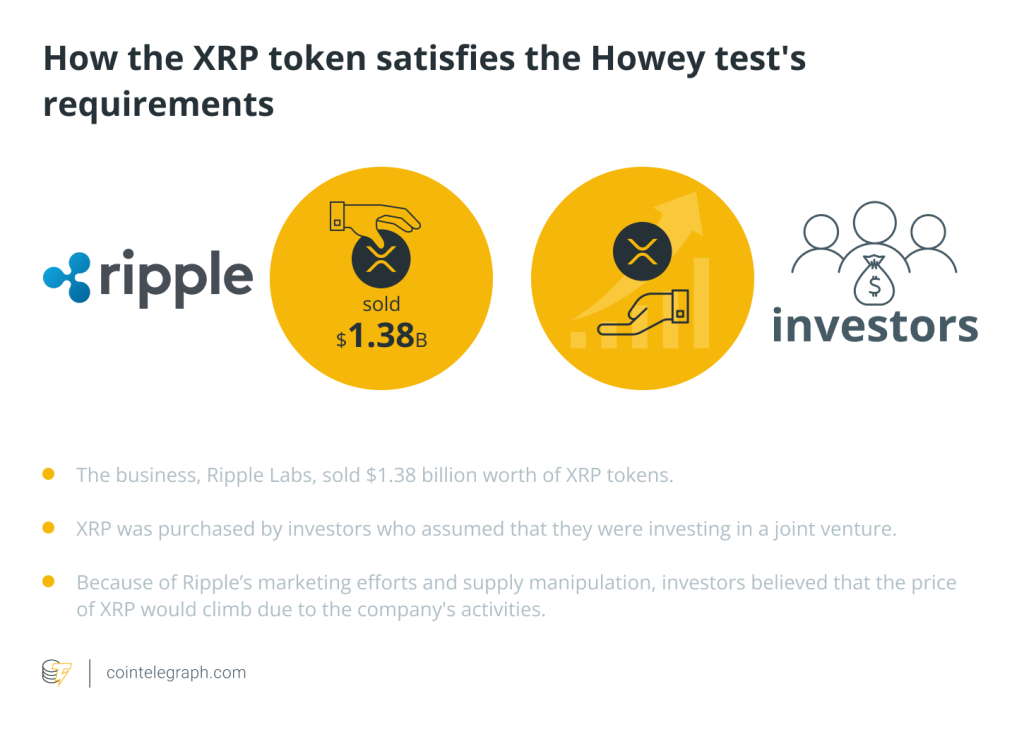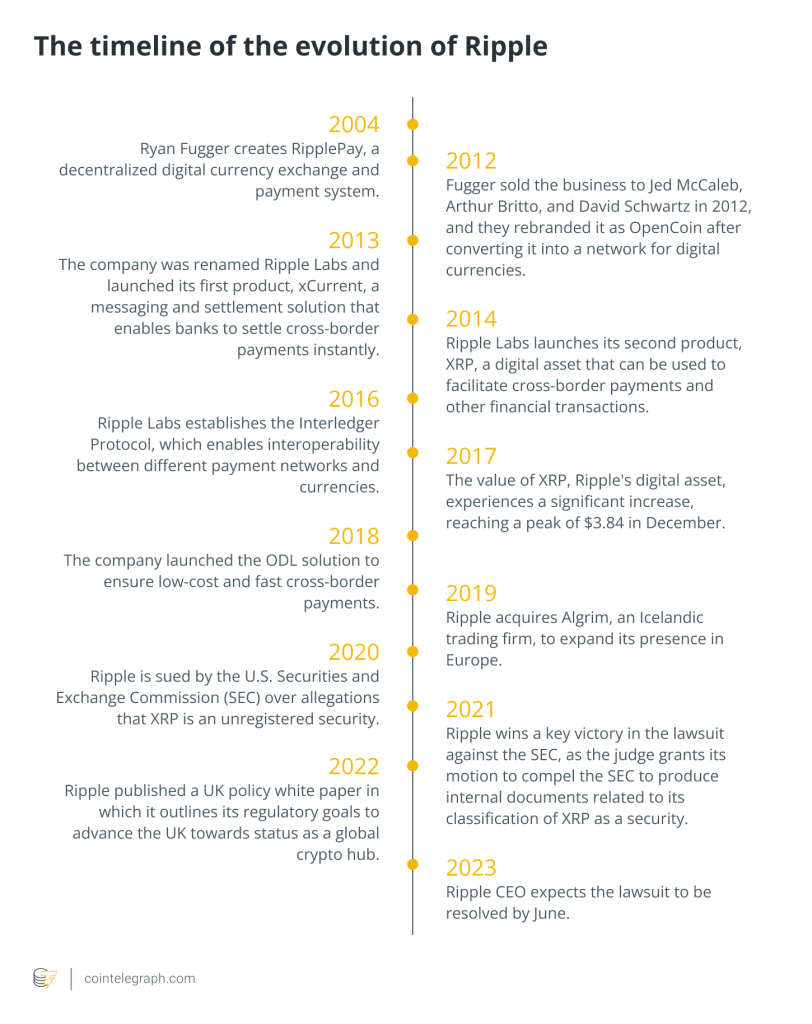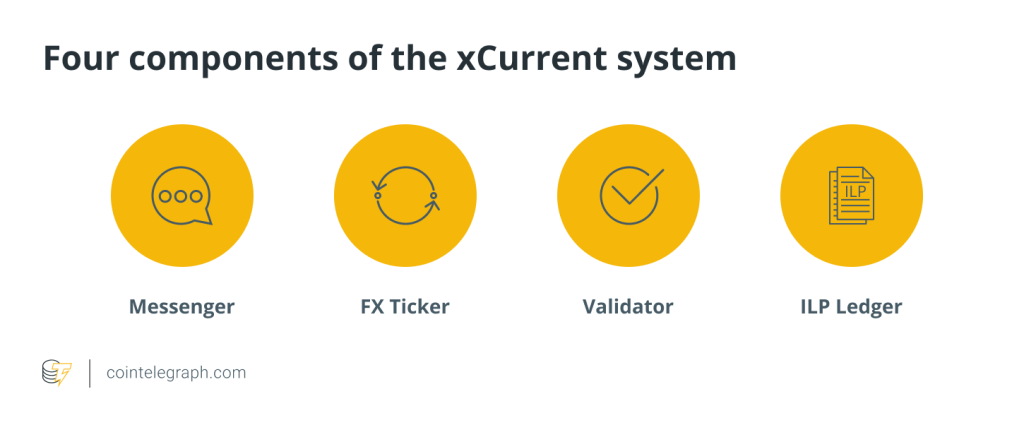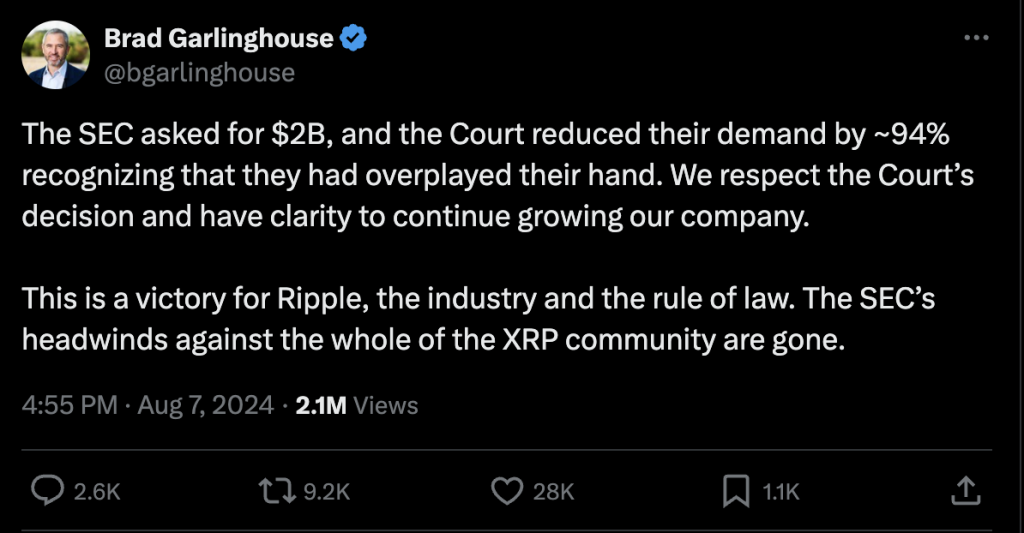The SEC vs. Ripple lawsuit: Everything you need to know


What is the SEC lawsuit against Ripple?
Ripple Labs first appeared on the fintech landscape in 2012 with a reassuring promise to provide financial institutions with low-cost and speedy clearance of cross-border money transfers. To make it happen, the business created the RippleNet network, on which transactions in the form of a cryptocurrency called XRP can be settled and cleared in real time.
Over several years, however, XRP (XRP) grew outside of its stated application. The company’s founders used XRP to raise funds in 2013. As a result, the United States Securities and Exchange Commission (SEC) filed a lawsuit against Ripple Labs and its current and previous CEOs in 2020. But why did the SEC sue Ripple?
The SEC alleged that the executives held an initial public offering (IPO) of XRP, which was an unregistered security at the time of raising capital. According to the complaint, Ripple raised funds by selling XRP tokens in unregistered security offerings to investors in the United States and worldwide. Additionally, Ripple offered billions of XRP in exchange for non-cash services like market-making and labor.
The lawsuit alleges that Chris Larsen, co-founder and former CEO of Ripple Labs, along with Brad Garlinghouse, Ripple’s current CEO, engaged in personal unregistered XRP transactions worth approximately $600 million. Additionally, they are accused of orchestrating and promoting XRP sales to bolster the company’s operations.
Moreover, the suit alleged the defendants failed to register their XRP offers and sales, or meet any exemption from registration in violation of the federal securities laws’ registration restrictions.
Related: XRP vs. Bitcoin: What are the key differences?
What are the SEC’s claims in its legal brawl with Ripple?
The SEC claimed that XRP is a security. Generally, a security is a traded financial instrument representing ownership in a corporation or similar entity that has no utility. For instance, publicly listed firms commonly define shares as securities to obtain financing.
Since XRP tokens were used to fund Ripple’s platform, which facilitates money transfers for retailers, a civil action was filed at the end of December 2020. The sales of XRP also enriched the platform’s management. However, it is important to note that, as per the SEC, Bitcoin (BTC) is not a security.
The SEC vs. W.J. Howey Co. was a landmark Supreme Court case in 1946 that aids in determining whether a transaction falls within the Securities Act of 1933’s definition of an investment contract.
According to the Howey test, the investor’s control over the profit is critical in determining whether an investment contract is a security. It is usually considered a security if the investors have no influence over the asset. So, did XRP comply with the requirements of the Howey test?
According to SEC requirements, securities must be registered with the agency, and some financial information must be publicly reported. The purpose is to protect investors’ interests while combating fraud. The SEC determined that XRP satisfied the Howey test’s requirements because:

Ripple’s response to the XRP court case
While the SEC often opts for settlements in its lawsuits, Ripple took a different approach by engaging in a legal battle instead of complying with the SEC’s demands and paying penalties.
Ripple’s lawyers claimed that the SEC never warned or notified the organization. The U.S. regulator also accepted that Ripple wasn’t notified that XRP could be classified as a security.
As a result, Ripple believed the SEC was biased when applying the security concept to XRP. If this is found to be true, the commission’s authority will be weakened — along with the credibility of its argument.
Ripple has specifically mentioned some of the links SEC members have had with other crypto platforms, namely Ethereum. While there is no proof of these links, the commission gave Ethereum a pass on securities legislation, saying that it operates in a decentralized manner.
Ripple lawsuit update: The timeline of the Ripple vs. SEC battle
In instances where court proceedings have taken place, the SEC has found favor, as judges have concurred that the crypto assets in question were securities. Unlike commodities, securities are subject to strict regulations, necessitating registration with the SEC by the issuer and comprehensive disclosures to educate investors about potential risks.
However, on July 13, Ripple Labs secured a significant win in the United States District Court for the Southern District of New York as Judge Analisa Torres partially ruled in favor of the company.
The series of events during the Ripple vs. SEC lawsuit are outlined below:
Dec. 21, 2020: SEC files lawsuit against Ripple Labs
The SEC initiated legal action against Ripple Labs, its CEO Brad Garlinghouse, and co-founder Chris Larsen, accusing them of conducting an unregistered securities offering. Despite the SEC’s demands, Garlinghouse declared Ripple’s intention to defend itself in the court case.
Dec. 28, 2020: XRP delisted by Coinbase
Coinbase, a prominent cryptocurrency exchange, announced the delisting of the XRP token from its platform. The ongoing legal dispute and the regulatory ambiguity surrounding XRP’s classification most likely impacted this choice.
March 3, 2021: Larsen and Garlinghouse challenge SEC’s fair notice
Larsen and Garlinghouse submitted letters to the court arguing that the SEC lacked fair notice regarding the classification of XRP as a security. They raised concerns about the SEC’s alleged failure to provide clear guidance to market participants.
March 8, 2021: SEC requests an immediate hearing
In response to Larsen and Garlinghouse’s arguments, the SEC requested an immediate hearing from the judge to address the fair notice issue and other matters related to the case.
March 22, 2021: XRP token determined to have currency value and utility
Judge Sarah Netburn ruled that XRP possesses currency value and utility, differentiating it from cryptocurrencies like Bitcoin (BTC) and Ether (ETH). This ruling marked a notable development in the case and highlighted the distinction between various digital assets.
April 13, 2021: Token Safe Harbor Proposal 2.0 published
SEC Commissioner Hester Peirce published the Token Safe Harbor Proposal 2.0. This proposal aimed to give developers a three-year grace period, exempting them from securities laws, to better understand their involvement in decentralized networks.
June 14, 2021: SEC’s internal crypto trading policies deadline extended
The court extended the SEC’s deadline for disclosing its internal crypto trading policies to Aug. 31, 2021. This extension allowed more time for the SEC to reveal its internal workings regarding cryptocurrency trading and potential conflicts of interest.
Aug. 31, 2021: SEC’s internal crypto trading policies disclosure deadline
As per the extended deadline, the SEC was required to disclose its internal crypto trading policies. This disclosure aimed to shed light on the SEC’s operations and their potential impact on the case.
Oct. 15, 2021: Expert discovery deadline
The expert discovery deadline was set for gathering opinions from experts in cryptography and securities. This process aimed to provide additional insights and expert perspectives on the case.
Jan. 24, 2022: Extension granted for sensitive document disclosure
Netburn gave the SEC until Feb. 17 to appeal her earlier decision requiring Ripple Labs to disclose certain sensitive government documents.
Sept. 17, 2022: SEC and Ripple Labs file initial motions for summary judgment
Both the SEC and Ripple Labs submitted their initial motions for summary judgment, marking a significant step in the legal proceedings. These motions outlined each party’s arguments and positions regarding the case.
Sept. 21, 2022: Chamber of Digital Commerce granted permission to file amicus curiae brief
The court reviewed and granted a request from the Chamber of Digital Commerce — an American advocacy group for blockchain technology — to file an amicus curiae brief.
Dec. 2, 2022: Reply to summary judgment motions made public
After the Nov. 30 deadline, the SEC and Ripple Labs’ replies supporting their summary judgment motions were made public. These documents provided additional insights into the parties’ legal arguments and responses to the opposing party’s motion.
Dec. 22, 2022: SEC attempts to prevent public release of Hinman documents
The SEC applied to prevent the release of the Hinman documents in the XRP lawsuit, including any references to them in court papers submitted by Ripple Labs. The Hinman documents were subject to a lengthy back-and-forth between Ripple and the SEC regarding their relevance and potential impact on the case.
June 12, 2023: Hinman documents unsealed and made public
After a prolonged legal process, the Hinman documents were finally unsealed and made publicly available. These documents, which include the internal communications of William Hinman, the former director of the SEC’s Division of Corporation Finance, hold potential significance in the Ripple vs. SEC lawsuit. The public availability of the Hinman documents added a new dimension to the ongoing legal battle.
July 13, 2023: Ripple Labs wins the case
Torres ruled that Ripple did not break the law when XRP was sold on public exchanges, and the cryptocurrency sector scored a success in its legal struggles with U.S. regulators.
However, the decision was not entirely in the industry’s favor because Ripple was found to have broken the securities laws when it offered XRP to hedge funds and other institutional buyers.
Is the XRP lawsuit over?
It is a partial victory for both parties in the SEC vs. Ripple lawsuit. Torres concluded that the $728.9 million in XRP sales made by the business to hedge funds and other institutional customers constituted unregistered sales of securities, giving the SEC a partial victory.
According to Torres, Ripple actively targeted institutional investors with its marketing, highlighting that the business endorsed a speculative value thesis for XRP. This proposition was subject to Ripple continuing to improve the blockchain infrastructure underpinning the digital asset.
The legal process will probably continue with more proceedings following the SEC’s partial victory in the XRP suit. Ripple may appeal the judgment or add new justifications for its disagreement with the court’s ruling.
Alternatively, it could suggest a settlement with the SEC to resolve the outstanding issues. Overall, the verdict in the lawsuit might have wider ramifications for how cryptocurrencies and other digital assets are regulated. It might serve as a model for how similar regulatory proceedings against crypto firms can be handled in the future.






… [Trackback]
[…] Read More here on that Topic: x.superex.com/academys/beginner/2393/ […]
… [Trackback]
[…] Find More Info here to that Topic: x.superex.com/academys/beginner/2393/ […]
… [Trackback]
[…] Find More on on that Topic: x.superex.com/academys/beginner/2393/ […]
… [Trackback]
[…] Read More Info here on that Topic: x.superex.com/academys/beginner/2393/ […]
… [Trackback]
[…] Find More Information here to that Topic: x.superex.com/academys/beginner/2393/ […]
… [Trackback]
[…] Find More to that Topic: x.superex.com/academys/beginner/2393/ […]
… [Trackback]
[…] Read More on on that Topic: x.superex.com/academys/beginner/2393/ […]
… [Trackback]
[…] Here you can find 62136 additional Information to that Topic: x.superex.com/academys/beginner/2393/ […]
… [Trackback]
[…] Find More on to that Topic: x.superex.com/academys/beginner/2393/ […]
… [Trackback]
[…] Read More Information here to that Topic: x.superex.com/academys/beginner/2393/ […]
… [Trackback]
[…] Find More to that Topic: x.superex.com/academys/beginner/2393/ […]
… [Trackback]
[…] Information to that Topic: x.superex.com/academys/beginner/2393/ […]
… [Trackback]
[…] Read More Information here to that Topic: x.superex.com/academys/beginner/2393/ […]
… [Trackback]
[…] There you will find 74087 additional Information to that Topic: x.superex.com/academys/beginner/2393/ […]
… [Trackback]
[…] There you can find 66593 more Information to that Topic: x.superex.com/academys/beginner/2393/ […]
… [Trackback]
[…] Read More here on that Topic: x.superex.com/academys/beginner/2393/ […]
… [Trackback]
[…] Find More on that Topic: x.superex.com/academys/beginner/2393/ […]
… [Trackback]
[…] Read More on that Topic: x.superex.com/academys/beginner/2393/ […]
… [Trackback]
[…] Find More Info here on that Topic: x.superex.com/academys/beginner/2393/ […]
… [Trackback]
[…] Read More to that Topic: x.superex.com/academys/beginner/2393/ […]
… [Trackback]
[…] Here you can find 98911 additional Info to that Topic: x.superex.com/academys/beginner/2393/ […]
… [Trackback]
[…] Find More on on that Topic: x.superex.com/academys/beginner/2393/ […]
… [Trackback]
[…] There you will find 83593 additional Information to that Topic: x.superex.com/academys/beginner/2393/ […]